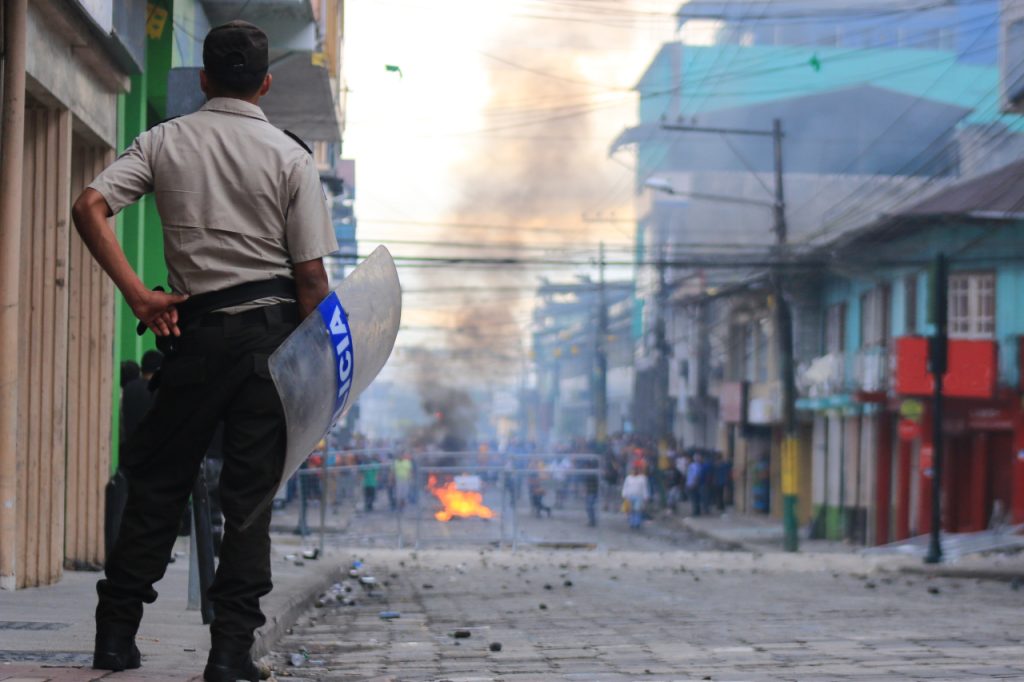BTI 2022: An Alarm Signal for Democracy
In the Bertelsmann Transformation Index 2022, authoritarian states are in the majority for the first time ever. But there are also signs of hope.
“Democracy in crisis?” This question has been voiced at many symposiums and written in many reports over recent years. Looking at the latest edition of the Bertelsmann Transformation Index (BTI), the question mark can be deleted. The crisis is real and it is global: the BTI 2022 leaves no doubt about this in its assessment of the development of 137 transition countries.
There are 70 autocracies compared to only 67 democracies – for the first time since the BTI’s launch in 2003, authoritarian states are in the majority. The index also records historic lows in the two other aspects of the survey. “Never before in the last twenty years have socio-economic development levels and economic performance been rated so low in the BTI,” the BTI report states. Also government performance continued to decline, particularly in the consensus-related aspects of governance.
It is clear to the authors of the Bertelsmann Stiftung that this is by no means a pandemic-related blip. The current deterioration has an “alarming character” because it formed the most recent section of a continuous downward trend characterised by steadily growing polarisation, inequality and repression.
The worrying drift of democracies
The authoritarian drift of democracies is particularly worrying. Among the 57 countries that the BTI has consistently classified as democracies over the past decade, the population’s trust in democratic institutions and processes, as well as their acceptance by political elites, has diminished significantly. Almost one in five is worse off today than it was ten years ago, and the largest of them, India, is now even “at a tipping point” according to the BTI country report. Brazil and the EU member states Bulgaria, Poland and Hungary have also been relabelled by BTI as defective democracies.
Hungary’s emergency law of March 2020, which allowed Viktor Orbán to govern without parliamentary approval, was probably “the most extreme example” of the instrumentalization of the Corona pandemic among democracies worldwide. But decline does not always come in a (right-wing) populist guise. Rodrigo Duerte in the Philippines is the most high-profile example of the emerging type of seemingly non-ideological “man of action” who rules with an iron fist, presenting efficiency on the one hand and political participation and justice on the other as opposites. The BTI has observed similar patterns in Benin, El Salvador and most recently Tunisia. The strongmen are taking advantage of the veritable crisis of confidence that has gripped even consolidated democracies.
During pandemic times, this approach has become particularly popular, especially because it is reinforced by the narrative of the already successful state-capitalist development dictatorship, which China, in particular, is powerfully propagating. It is true that countries like China and Singapore, the UAE, Qatar and Vietnam have an above-average strategic capacity. But a glance at the gigantic problem of corruption (also in China), for example, proves that in general democracies also provide the more efficient governments by a wide margin. However, this is only true if those in power meet basic requirements such as the ability to learn or the willingness to reach a consensus.
Neither of these qualities are evident in the case of Brazil’s President Jair Bolsonaro – one of the main reasons why Brazil has fallen from position 43 in 2020 to position 85 in the latest study. Bolsonaro’s administration has not only failed in its management of the pandemic, its environmental policymaking is also scandalously bad. Unfortunately, this is just one aspect of a bleak picture. Hardly any government has used the resource-based growth of the penultimate decade to decisively kickstart the necessary decarbonisation of the economic system and build up alternative sources of wealth. Initiatives moving in this direction, for example in the area of school education, were brutally undermined by the pandemic in many places. Financially, there is usually also little talk of sustainability. Fiscal stability, for example, has fallen significantly on a global average over the last decade, and countries such as Zambia or Lebanon are highly indebted, currently at 130 and 150 percent of gross domestic product (GDP) respectively.
And yet: Those who are looking for signs of hope and approaches for a constructive foreign and development policy will also find them in the BTI 2022. First, there is the hard core of resilient democracies that have defied all turbulence for almost two decades. This group of 14 countries includes the Baltic states and Taiwan, which are threatened by the authoritarian superpowers Russia and China – and deserve all the more support.
Second, no downward trend is irreversible. In Europe, for example, following in the footsteps of Northern Macedonia, Romania and Slovakia, Bulgaria and the Czech Republic have now also left the right-wing authoritarian path and elected more liberal governments. The electoral successes of opposition candidates in Zambia and Honduras or the assumption of office by President Samia Suluhu Hassan in Tanzania also give cause for hope. “Especially developing countries with a democratisation tendency need international support, which should be provided by a value-based foreign policy,” writes the BTI in this context.
Finally, global civil society is increasing resisting trends of disenfranchisement, corruption and social exclusion. In more than half of the countries studied by the BTI, demonstrations and cooperations also bucked the general negative trend. Even where there is a threat of brutal violence – in Belarus, Myanmar or Sudan, for example – people are taking to the streets and forming alliances online. Their oppressors deserve more than verbal condemnation. A “safe haven in an emergency”, as the BTI labels it, is the least that democrats owe them.
Translation by Jess Smee

